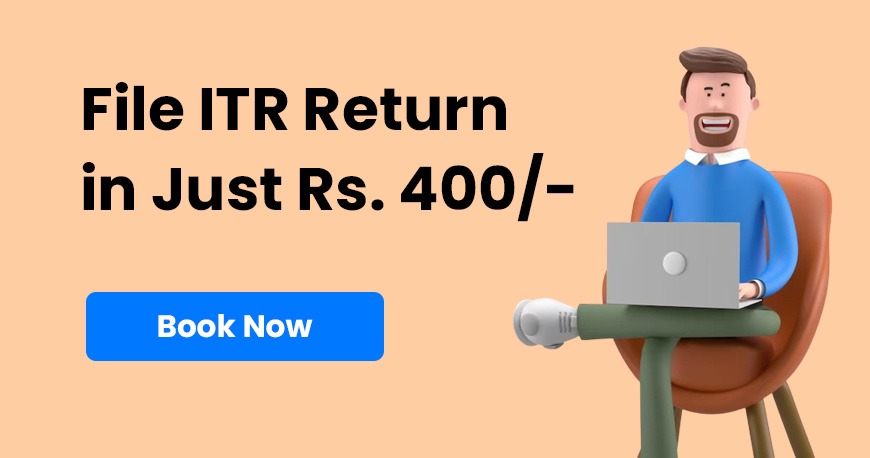Understanding Section 269ss and Section 269t of the Income Tax Act, 1961
In this article, We will break down what they mean, why they matter, and when they apply. By the end, you'll have a better understanding of how these rules help make money dealings more honest and accountable.
- #Section 269SS and 269T
- # Income Tax Act 1961
- # transaction regulations
- # payment provisions
- # Income Tax Act sections
- #article
- # news
- # notifications
- # finance
- # legal
- # tax updates
- # myitronline
- # itr
- # filing now with myitronline
- # free itr filing
- # tax save itr filing
- # maximum tax save
- # best itr services
- # best itr filing
Understanding Section 269ss and Section 269t of the Income Tax Act, 1961
Two important parts of the Income Tax Act: Section 269SS and Section 269T. These sections have specific rules about how money transactions can happen to keep things fair and clear.
In this article, We will break down what they mean, why they matter, and when they apply. By the end, you'll have a better understanding of how these rules help make money dealings more honest and accountable.
What is Section 269SS of the Income Tax Act?
This section sets a rule about receiving money from others. If you're getting a deposit, loan, or a specific amount of money, and it's Rs. 20,000 or more, you can't take it in cash. Instead, it should be through a bank draft, a cheque, or electronically through a bank account.
Let's understand with an example: Imagine Mohit wants to borrow Rs. 50,000 from his friend Amit. Since this is more than Rs. 20,000, he can not take it in cash.
There are three conditions to remember:
1. The total of the deposit, loan, or specified sum is Rs. 20,000 or more.
For instance, if Mohit wants a loan of Rs. 10,000 and an advance of Rs. 15,000 from Amit, he can not take it in cash because together it's Rs. 25,000, which is more than Rs. 20,000.
2. If someone already borrowed money from you, but they haven't paid it back yet, you can't accept another loan in cash if the total is Rs. 20,000 or more.
For example, if Mohit got a loan of Rs. 15,000 from Amit, and asked for another loan of Rs. 8,000 when the first loan is still unpaid, he can't take the new loan in cash because the total outstanding amount is Rs. 23,000, which is more than Rs. 20,000.
You can not accept cash deposits or loans of Rs. 20,000 or more from others as per Section 269SS of the Income Tax Act.
Exemptions u/s 269SS of the Income Tax Act:
There are certain exceptions to the rules in Section 269SS. They include:
1) Any specified sum, loan, or deposit received or given to the following entities:
- The Government
- Corporations created by State, Central, or Provincial Acts
- Post office savings banks, banks, or cooperative banks
- Government organizations mentioned in section 2(45) of the Companies Act, 2013
- Institutions, bodies, or associations mentioned in the Official Gazette
This means if you get or give money to any of these entities, Section 269SS rules don't apply.
2) If someone with only agricultural income receives money from another person with only agricultural income.
3) If you get cash from relatives during emergencies. The purpose should not be to avoid taxes.
4) When partners put in cash as capital in a partnership firm.
In simple words, there are cases where you can receive or give money in cash without following Section 269SS rules.
What are the ways of accepting transactions u/s 269SS?
There are some specified ways of accepting deposits, loans, or specified sums. These ways are mentioned below:
Account payee cheque/bank draft, Electronic Clearing System (ECS) through a bank account, Net Banking, Credit Card, Debit Card, RTGS, NEFT, BHIM, IMPS, UPI.
Penalty for Breaching Section 269SS
The assessing officer can impose a penalty equal to 100% of the loan or deposit amount.
What is Section 269T of the Income Tax Act?
Section 269T of the Income Tax Act prevents an individual from giving back a deposit, specified sum, or loan using anything other than a bank draft, account payee cheque, or electronic clearing system through a bank account, when:
1) The total deposited amount, along with the interest, is Rs. 20,000 or more.
2) The combined sum of the deposit or loan, plus the interest, held by an individual either in their name or jointly with someone else, is Rs. 20,000 or more.
if the amount to be repaid as a deposit or loan, along with interest, equals or exceeds Rs. 20,000, Section 269T of the Income Tax Act doesn't allow the repayment to be made in cash.
Exemptions u/s 269T of the Income Tax Act:
An individual who is repaying Rs. 20,000 or more as a deposit or loan doesn't need to follow Section 269T of the Income Tax Act if they are repaying to these parties:
- The Government
- Organizations established by State, Central, or Provincial Acts
- Banking organizations, cooperative banks, or post office savings accounts
- Specific institutions mentioned in notifications
- Government organizations as defined in Section 617 of the Companies Act, 1956.
Hence, if you are repaying Rs. 20,000 or more to these entities, you don't have to worry about Section 269T rules.
Penalty on Dispute of Section 269T
If the repayment of the deposit or loan in cash is above the prescribed limit, he is liable to pay a penalty of 100% of the deposit amount or the loan repaid.
As per Section 273B of the IT Act, 1961, No penalty is levied on an individual if they fail to obey the inclusions of section 269T or 269SS because of some relevant reasons.
Situations Where Penalties Aren Not Applied u/s 269SS and Section 269T:
1. Partner's Investments: When a partner puts cash into or takes out Rs. 20,000 or more from the partnership, penalties under section 269T and section 269SS don't apply. These rules don't count capital contributions or withdrawals as deposits or loans.
2. No Penalty for Accessible Deposits: Penalties under Section 271D aren't imposed when the deposited amount is treated as income.
3. Payments Between Partners and the Firm: Money exchanged between the firm and its partners does not result in penalties.
4. No Penalty for Journal Entry Transactions: Repayments or acceptances using Journal Entries aren't seen as deposits or loans, so no penalties apply under Section 269SS or Section 269T of the Income Tax Act, 1961.
5. Emergency Transactions: Payments made during emergencies don't lead to penalties either.
There are instances where penalties are not enforced under Section 269SS and Section 269T of the Income Tax Act.
Penalty for Contravening Section 269T
The assessing officer can impose a penalty equivalent to 100% of the loan or deposit amount.
Sections 269SS and 269T for NBFCs:
The Reserve Bank of India (RBI) issued a notice stating that significant gold loans (of Rs. 1 lakh or more) can only be given out through cheques.
This notice points out that according to the Income Tax Act's rules under Section 269SS and 269T, which were made in 1961 and have been updated over time, these rules will now apply to all Non-Banking Financial Companies (NBFCs) without any delay. Right now, the limit set in the Income Tax Act is Rs. 20,000.
This notice means that NBFCs can not hand out more than Rs. 20,000 in cash for gold loans. They need to use cheques for transactions beyond that amount.
Conclusion
Tax evasion stands as a significant concern in India, contributing to economic imbalances. In response, the enactment of section 269SS and section 269T within the Income Tax Act serves as a measure to counter the rise of cash transactions and the resulting growth of unreported income.
Collectively, these regulations underline that neither receiving nor repaying deposits or loans should occur in cash if the total amount surpasses Rs. 20,000.
Also Read: Pay-Later: Exciting Feature Addition to Income Tax e-Filing Website
FILING YOUR INCOME TAX RETURN F.Y 2022-23 (A.Y. 2023-2024) WITH MYITRONLINE
Income tax filing deadline is right around the corner. If you haven’t filed yet, do it now for FREE on Myitronline! Avoid last minute rush and file your tax return today on MYITRONLINE in Just 5 mins.(www.myitronline.com)
If you are looking for eCA assistance to file your income tax return/ GST, you can opt for MYITRONLINE eCA assisted plan starting
Upload Salary Individual Form-16
If you have any questions with filing your tax return, please reply to this mail. info@myitronline.com OR call 9971055886.
Note-All the aforementioned information in the article is taken from authentic resources and has been published after moderation. Any change in the information other than fact must be believed as a human error. For queries mail us at marketing@myitronline.com
Krishna Gopal Varshney
An editor at MyitronlinenewsKrishna Gopal Varshney, Founder & CEO of Myitronline Global Services Private Limited at Delhi. A dedicated and tireless Expert Service Provider for the clients seeking tax filing assistance and all other essential requirements associated with Business/Professional establishment. Connect to us and let us give the Best Support to make you a Success. Visit our website for latest Business News and IT Updates.









